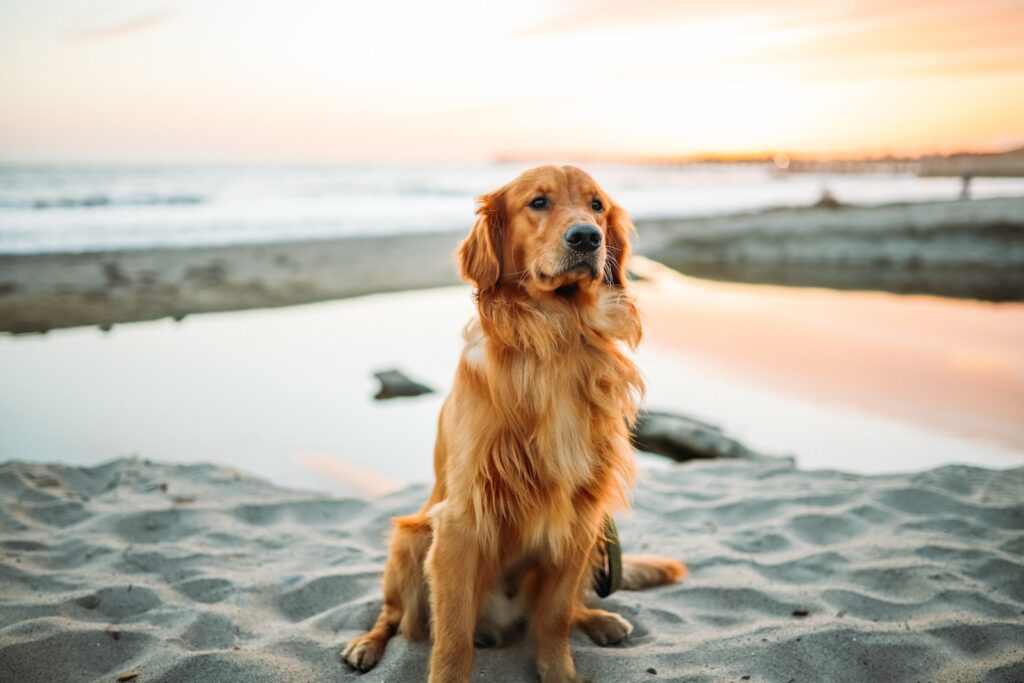Can Dogs Eat Dill? — Yes, They can
Dill is safe for dogs to consume in moderate amounts. It can provide various health benefits and add flavor to their meals. However, it is important to feed dill to dogs in moderation and avoid excessive consumption. Let’s dive into the details!
Can Puppies Eat Dill?
Yes, puppies can also eat dill. However, it is crucial to introduce new foods gradually to their diet and start with small portions. This allows their digestive system to adjust and minimizes the risk of any adverse reactions. As always, moderation is key when feeding dill to puppies.
Things to consider when feeding Dill to puppies?
When feeding dill to puppies, it’s important to ensure that the dill leaves are fresh and free from any pesticides or harmful chemicals. Additionally, chop the dill into small, manageable pieces to prevent choking hazards. Monitor your puppy while they’re consuming dill to ensure they do not overeat or show any signs of allergies or discomfort.
Nutritional Benefits of Dill for Dogs — Why Dill is good for Dogs?
1. Vitamins and Minerals
Dill is a rich source of vitamins A, C, and K, as well as minerals like calcium, iron, and manganese. These nutrients contribute to your dog’s overall health, support their immune system, and promote strong bones and teeth.
2. Digestive Health
Dill contains dietary fiber, which aids in digestion and can help prevent constipation in dogs. It also possesses carminative properties, which may help alleviate gas or bloating in some dogs.
3. Antioxidant Properties
The antioxidants present in dill, such as flavonoids and polyphenols, help combat harmful free radicals in your dog’s body. This can contribute to reducing the risk of chronic diseases and promote overall well-being.
4. Freshens Breath
Dill has natural breath-freshening properties, which can help combat doggy breath. Including dill in your dog’s diet or using it as an occasional treat can help improve their oral hygiene.
5. Appetite Stimulation
Sometimes dogs can have a decreased appetite due to illness or other factors. The aroma of dill can act as a stimulant and help enhance their appetite, encouraging them to eat their meals.
Potential Allergies: Can Dogs Be Allergic to Dill?
While dill is generally safe for dogs, some canines may be allergic to it. It’s important to keep an eye out for any allergic reactions when introducing dill to your dog’s diet. If you notice any signs of allergies, such as itching, redness, swelling, or gastrointestinal issues, discontinue the use of dill and consult your veterinarian.
Symptoms of Dill Allergies in Dogs
- Hives or skin rash
- Itchy or runny eyes
- Sneezing or coughing
- Vomiting or diarrhea
- Difficulty breathing
What to Do If Your Dog Shows Symptoms?
- If you suspect your dog is experiencing an allergic reaction to dill, discontinue feeding it immediately.
- Contact your veterinarian for advice and further guidance.
- If the symptoms are severe or your dog is having trouble breathing, seek emergency veterinary care.
Recommended Amount: How Much Dill Can a Dog Consume?
When it comes to feeding dill to your dog, moderation is key. As a general guideline, aim to include dill as an occasional treat or sprinkle a small amount of fresh dill over their regular meals. This ensures your dog receives the beneficial nutrients without overloading their system.
Things to Consider When Feeding Dill to Dogs
While dill is generally safe for dogs, it’s important to introduce it gradually and in small quantities. Additionally, always wash the dill thoroughly before feeding it to your dog to remove any potential contaminants or pesticides. As with any new food, keep an eye on your dog for any adverse reactions and consult your veterinarian if any concerns arise.
How to Feed Dill to Dogs: A Quick Guide
Feeding dill to dogs can be done in various ways. Here are a few suggestions:
Dill-Infused Water
Add a few sprigs of fresh dill to your dog’s water bowl. The infused water can help freshen their breath and add a hint of flavor.
Dill as a Garnish
Sprinkle chopped fresh dill over your dog’s regular meals as a flavorful garnish. Remember to keep the portions small.
Dill Treats
You can make homemade dog treats using dill as one of the ingredients. Search for simple and dog-friendly recipes online, ensuring they do not contain any harmful ingredients for dogs.
Conclusion
Dill can be a safe and nutritious addition to your dog’s diet when fed in moderation. It offers various health benefits, including vitamins, minerals, and improved digestion. However, it’s essential to monitor your dog for any allergies or adverse reactions. If in doubt, consult with your veterinarian before introducing dill or any new food to your dog’s diet. Remember, a happy and healthy pup is a well-nourished one!






